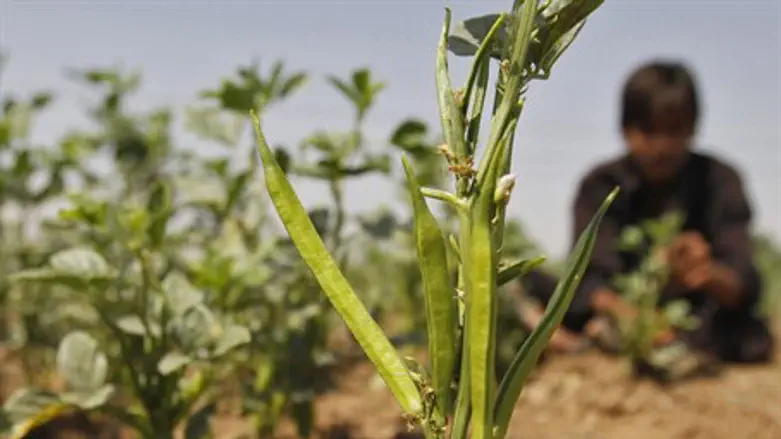
The government will allocate NIS 100 million in extra funding for the Religious Affairs Ministry in order to assist in preparation for the upcoming shemittah year, the sabbatical year in which Jewish farmers are supposed to let their fields lay fallow.
The next shemittah year will begin this coming Rosh Hashana (Jewish new year) in September. The somewhat complex issues of shemita were thoroughly explained in Arutz Sheva articles in 2007, ahead of the previous shemittah year, which began then. The funding is expected to be approved Sunday during the weekly government cabinet meeting.
The Torah commandment to leave fields fallow for one year every seven years involves many complicated Halakhic (Jewish legal) issues, and opinions differ on how best to adhere to the laws without unduly harming farmers' livelihood.
Of the total sum, NIS 11.5 million will be available for educational organizations to provide assistance and guidance for farmers who wish to fulfill the precepts of shemittah. An additional NIS 2 million will be available to produce materials explaining the importance of shemittah.
Another NIS 2 million will be used for a special “Hakhel” ceremony, to take place at the Western Wall at the end of the shemittah year. According to the Torah, the entire nation is to gather at the Temple at the end of the shemittah year to hear the Torah read in public by the nation's leaders, in the Hakhel ceremony. The balance will be used to support farmers who need assistance in fulfilling shemittah properly.
Speaking to a large group of rabbis in January, Chief Ashkenazi Rabbi David Lau appealed for unity during the shemittah year. The sabbatical has been marred in recent years by the ongoing debate between those who approve of the "heter mechira,” a process that permits "selling" the land to a non-Jew so that agricultural work can continue during the shemittah year. The process, which was strongly advocated by the late Rabbi Ovadia Yosef, and originally approved by the first Chief Rabbi Avraham HaCohen Kook, is strongly opposed by the Ashkenazic hareidi rabbinate.
"I told the Rishon Letzion (Rabbi Yosef) that unfortunately there are rabbis who will try to make controversy between us, but in our positions we will sit together G-d willing ten full years without 'please part from me' (Genesis 13:9)," remarked the rabbi, emphasizing cooperation. (His Biblical reference was the the episode when Avraham and his nephew Lot parted ways due to irreconcilable differences in lifestyle).
Rabbi Lau noted that debates between rabbis are “today unfortunately portrayed as a desecration of G-d's name and as disputes. Every word out of place said by a rabbi can cause of desecration of G-d's name, contempt for rabbis and all people. We must guard the holiness of the land, but no less the holiness of man and of each other,” he added.